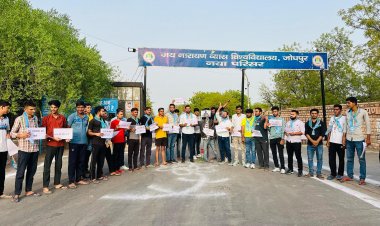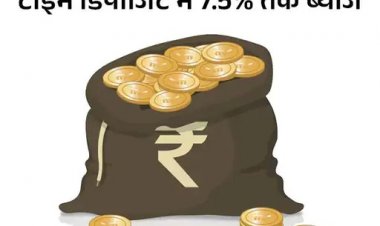IndiGo Makes History: Crosses Rs 1 Lakh Crore Market Cap, Orders 500 Aircraft"

IndiGo, the leading Indian airline, achieved a significant milestone on Wednesday (June 28) as its market capitalization crossed the Rs 1 lakh crore mark. This accomplishment makes IndiGo the first airline company in India to achieve such a feat.
On the Bombay Stock Exchange (BSE), IndiGo shares closed at Rs 2619.85, showing a 3.55% increase. During intraday trading, the stock reached a record high of Rs 2634.25. As a result, the company's market capitalization surged to Rs 1,01,007.56 crore.
This month, IndiGo placed an order for a staggering 500 Airbus A320 family aircraft. On June 19, the airline announced this remarkable purchase, making it the first Indian airline to place such a massive order in a single instance. Previously, Air India held the record for the largest order. The delivery of these aircraft is expected to take place between 2030 and 2035.
IndiGo's acquisition of 500 Airbus A320 family aircraft will cost approximately $50 billion (around Rs 4.09 lakh crore). However, the final cost of the order may be slightly lower due to customary discounts offered on substantial deals.
With a 61% share in the domestic market, IndiGo maintains a dominant position. The airline currently operates flights to 26 international destinations, serving 75 cities globally. Boasting a fleet of over 300 aircraft, IndiGo connects 78 cities within the country, offering more than 1800 daily flights.
Rapid Growth in Passenger Numbers Expected in India by 2027
Despite the impact of the Covid-19 pandemic, India has witnessed a 9% increase in air passengers compared to pre-pandemic levels. On average, approximately 4.5 lakh people travel by air daily.
In 2013-14, the country recorded 6 crore air passengers, which has now risen to 20 crore. The number of aircraft has also grown from 400 to 700.
Last year alone, 20 crore passengers traveled within India. It is anticipated that domestic and international passengers will reach 400 million by 2027.
Currently, the existing fleet of 700 passenger planes is insufficient to meet the growing demand. Consequently, several new airlines are expected to enter the market in the coming years, and even Air India plans to expand its fleet threefold.
Over the past eight years, the number of airports in India has increased from 74 to 141, with an additional 80 airports slated to be constructed within the next five years. By 2030, India is projected to have 220 airports.
According to the Center for Asia Pacific Aviation, India is estimated to witness 1300 million domestic and international air passengers with a fleet of 4000 planes by 2043.

 business
business 










